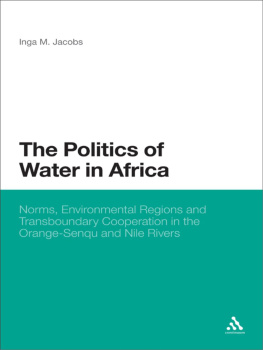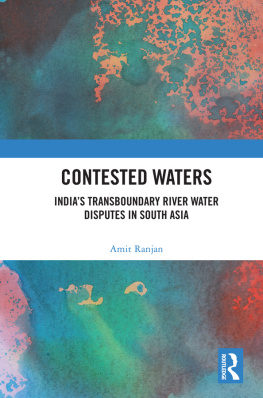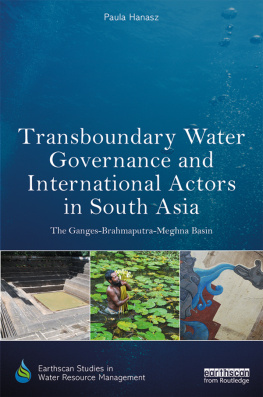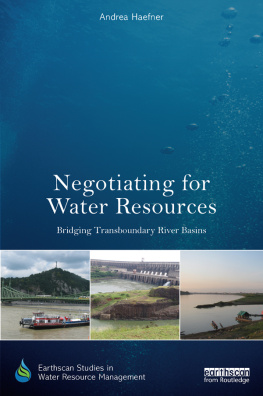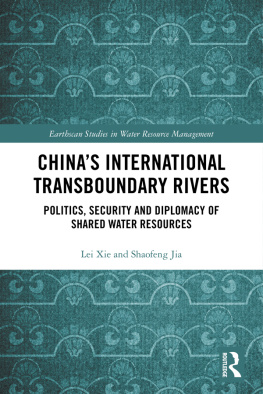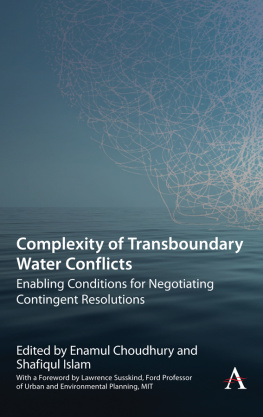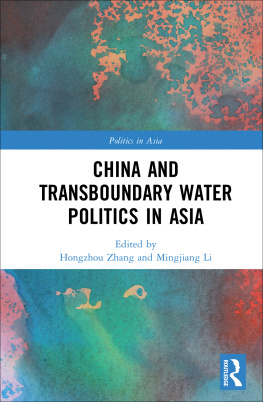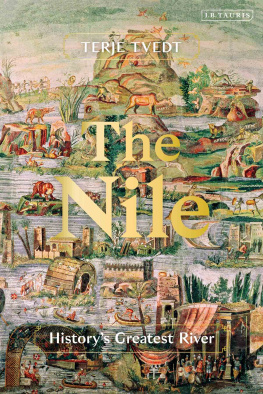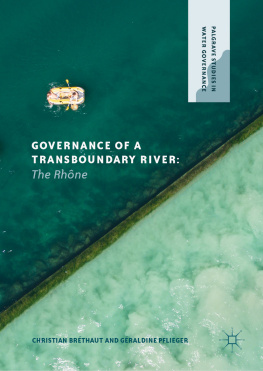Continuum International Publishing Group
A Bloomsbury Company
50 Bedford Square London WC18 3DP
80 Maiden Lane New York NY 10038
www.continuumbooks.com
Inga M. Jacobs, 2012
All rights reserved. No part of this book may be reproduced, stored in a retrieval system, or transmitted, in any form or by any means, electronic, mechanical, photocopying, recording, or otherwise, without the permission of the publishers.
ISBN: 978-1-4411-4968-8
Library of Congress Cataloging-in-Publication Data
A catalog record for this book is available from the Library of Congress
Foreword
Is water a technical or a political issue? Certainly the water sector is totally dominated by technical people, mostly engineers, but also natural scientists of various persuasion. Political scientists are a rare breed in the water sector, certainly in South Africa, but also globally. Personally I believe that water is not purely a technical issue. In fact, I have gone so far as to say that our national economy is a wholly owned subsidiary of our national hydrology. This is so because economic development is predicated on the one flawed assumption of continued growth. Indeed, financial analysts value shares traded on the various stock exchanges of the world, by taking the net asset value and multiplying it by the future growth potential. Without future growth potential that multiplier equals zero, and so the share is deemed to have insufficient value to trigger a buy option. Our economy is thus predicated on the flawed assumption that growth is inevitable and continuous, and this probably lies at the heart of the current global economic crisis.
This makes water political, because our economies are nested within ecosystems and these are sustained by the flow of water across landscapes and through countries. These environmental systems provide the source and sink relationship to the economy that is starting to become relevant. A fundamental assumption underpinning ecology is that of dynamic equilibrium. This is not a stable state, but rather an equilibrium that sees a series of processes balancing each other to the point where those ecosystems function within a range of parameters that are useful to mankind. Economies can grow while ecosystems are capable of providing the source/sink services needed, because we know it is simply illogical to assume that something which is assumed to be driven only by constant growth can be nested within, and sustained by, something that is known to be in dynamic equilibrium. In short there are finite limits to ecosystems, and by implication there are finite limits to the economic growth potential, and thus capacity to create jobs, of the various national economies.
After the global economic meltdown in 2008, the investment community suddenly became aware of undisclosed risk. This triggered a new drive to understand risk inherent to stocks being traded on global markets, and from this came an interest in water as an element of economic growth and development. One such analyst Susan Chang published a piece in The Investment Professional, the official journal of the New York Society of Security Analysts, entitled A Watershed Moment: Calculating the Risks of Impending Water Shortages. Chang noted that by 2025 it is estimated that 1.8 billion people will be living in conditions of absolute water scarcity (defined as annual per capita freshwater availability below 1,000 cubic metres a year), and two-thirds of the worlds population could be living under water-stressed conditions (with annual freshwater availability below 1,700 cubic metres per capita). This has major implications for governments, security forces, investors and decision-makers in both the public and private sectors, because in effect, many of the problems currently plaguing the developing world will start to manifest in the developed countries as well. The financial and investment community is smart and they have got it right the first time. Water is indeed the foundation to our global economy, so with population growth trends being what they are, and water availability being finite, it is inevitable that increased competition over water resources will drive politics globally.
That is why this book is so important, because it seeks to offer a systematic understanding of how sovereign states engage over the emerging issue of water as a limiting factor to future economic development potential. The big question is, will sovereign states seek to cooperate or compete for dwindling resources? Will they find new optima at levels of analysis and management above the river basin or sovereign nation state? If so, what will that unit of management be? If it is at the supranational level, then what norms, environmental regions and instruments of transboundary cooperation will emerge? Will sovereignty cease to be relevant in a new world redefined by water availability, as opposed to boundaries arbitrarily determined by former colonial powers and past military conflict?
Africa has the lowest conversion ratio of rainfall to run-off in the world. This has caused the World Bank to suggest that Africa is hostage to hydrology, with many national economies being directly coupled to the vagaries of the weather. The more developed countries in Africa have managed to decouple their national economies by building hydraulic infrastructure. But is this enough to sustain economic growth and job creation in the face of finite limits to water resources, and variable flow regimes driven by climate change? Will these countries comparative advantage be slowly eroded away as population growth drives water stress, or will they be able to renegotiate themselves into an advantaged future in the various transboundary river basins of the continent? Will endemic water scarcity provide currently disadvantaged states with new leverage to negotiate better equity in the allocation of natural resources? Will the various governments manage to incentivize the creation of the type of ingenuity needed to solve these increasingly complex problems?
All of these are political questions and all of these are based on water. Indeed, Africa has 64 known transboundary rivers that collectively contain around 93% of the total water available, covering 61% of the surface area of the continent, in which a staggering 77% of the population lives. If water is important, then transboundary water is a very big deal indeed, and this is why the book is relevant. It represents the state of the art with respect to Political Science and international relations (IR) theory as it pertains to the management of rivers that cross international borders. Drawing heavily on the work of various Political Science and IR scholars active in the global water sector, the author has systematically pieced together a body of knowledge that exceeds the value of the sum of its constituent parts. In short, this is an authoritative presentation of theory and practice in the management of water resources that is of use to managers, technicians, decision-makers in government and the corporate world, journalists and scholars.
Dr. Anthony Turton
Professor: Centre for Environmental Management,

